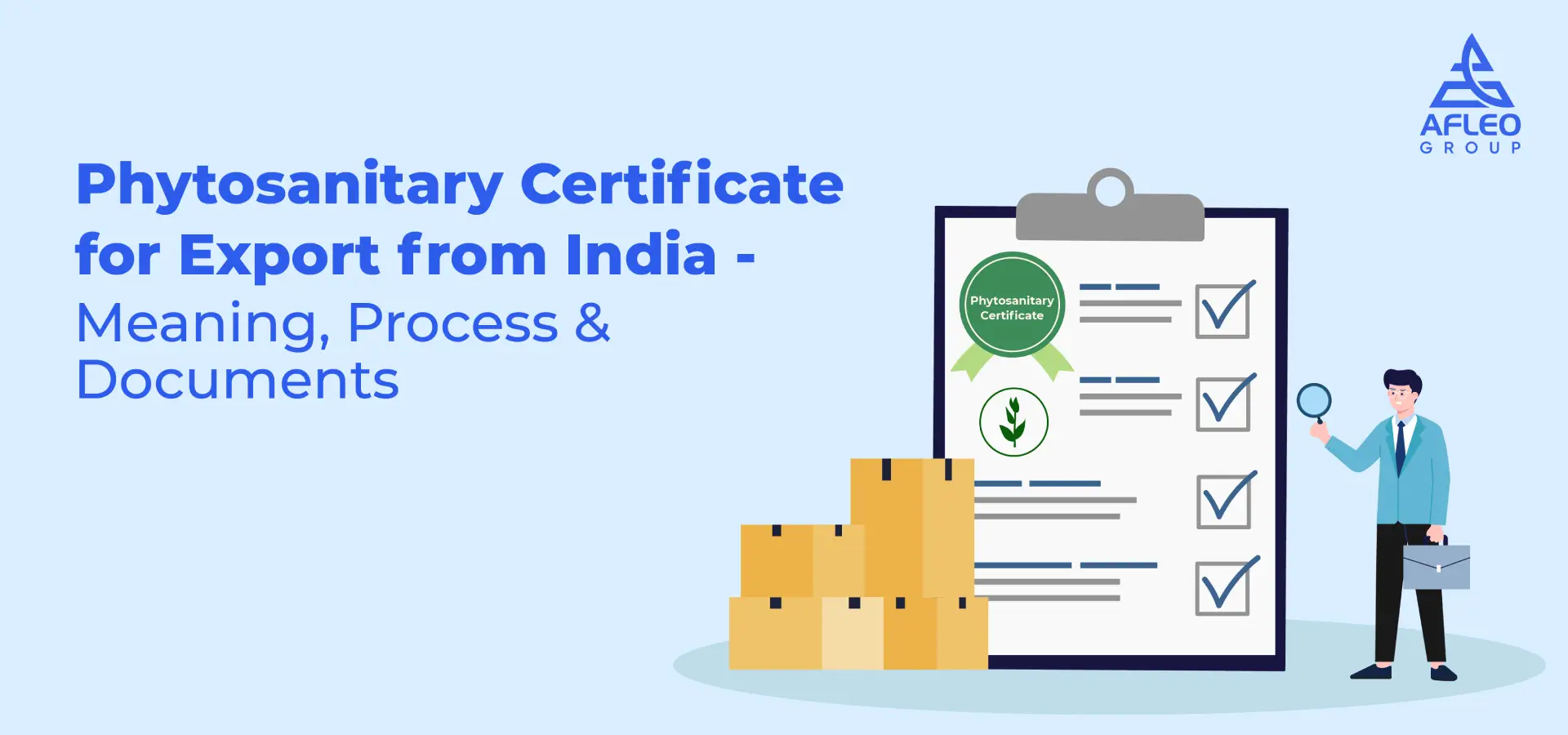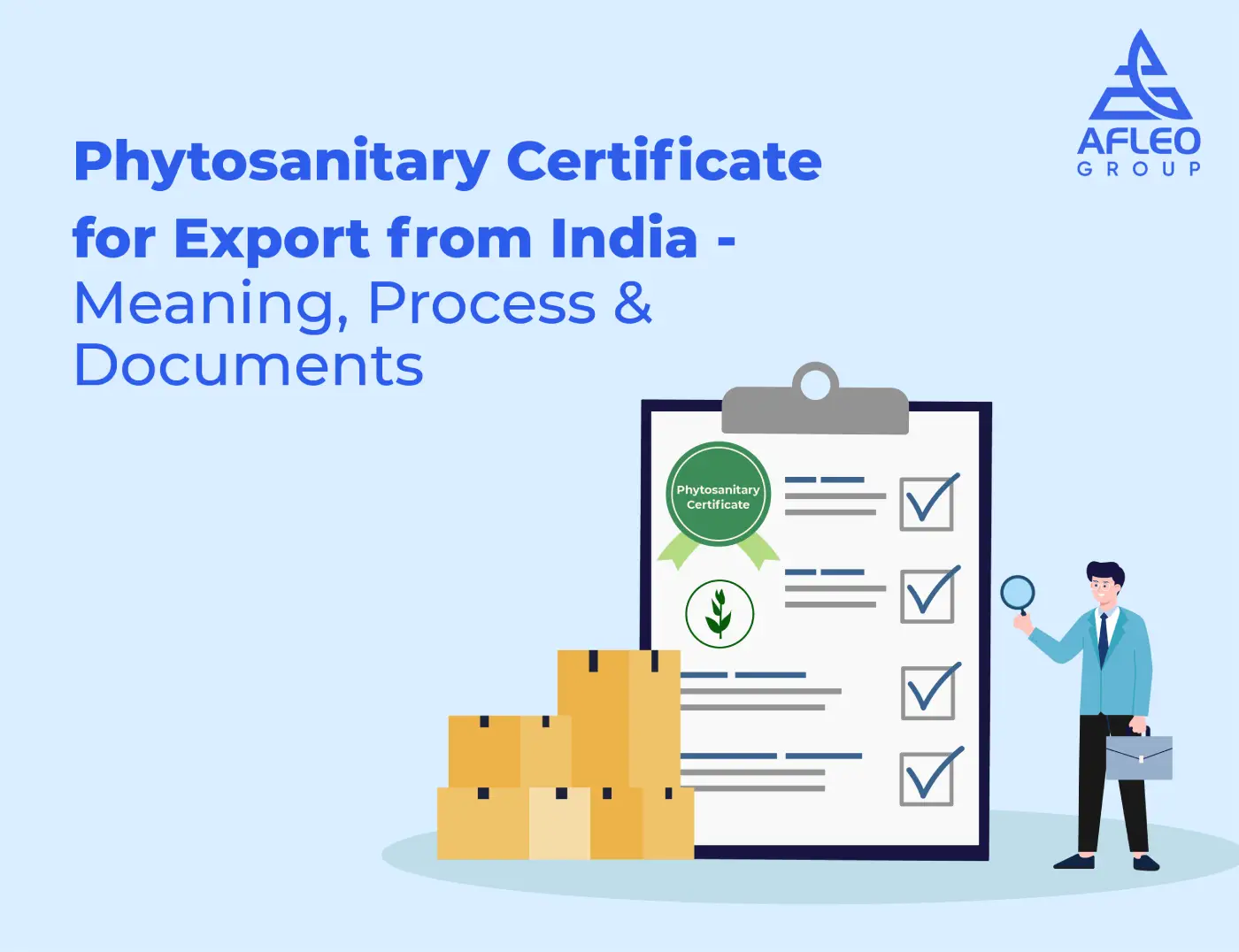
The export of crop products from one nation to another is regulated under strict plant health regulations to avoid the transfer of pests and diseases. A phytosanitary certificate (PSC) is one of the main requirements for exporters of plant and plant products. In India, it is an export permit for agricultural products that guarantees that exports will be accepted according to the health standards of the plant in the importing nation.
Whether you are exporting seeds, fresh products or fruits, or wooden items, it is worth learning about the phytosanitary certificate procedure. This article covers everything you want to know, from what is a phytosanitary certificate and why it is required, to the step -by -step application procedure in India.
What is a phytosanitary certificate?
A phytosanitary certificate is a certificate document signed by the Plant Quarter Authority of the Exporter Nation. It guarantees that the sending of plants, plant products or other regulated products has been inspected, meets the phytosanitary requirements of the importing country and is free of pests and quarantine diseases.
Issuance Authority in India
The issuing authority of phytosanitary certificates in India is the Ministry of Agriculture and the Quarantine and Inspection Inspection Services (PQI) of the Ministry of Agriculture. They issue them on behalf of the Indian government by the Directorate of Plant Protection, Quarantine and Storage (DPPQ).
Legal Base
The obligations of India for the issuance of phytosanitary certificates are derived under the International Plant Protection Convention (IPPC) to which India is part. At the national level, the order of quarantine of plants (regulation of importation to India), 2003, governs the procedure and regulatory compliance.
Why is a phytosanitary certificate for export?
The main purpose of a phytosanitary certificate is to guarantee the prevention of cross -border propagation of pest and plant diseases. The exporting country must demonstrate that its exports are free of pests and also meet the requirements of the importing country.
Mandatory for certain products
The certificate is mandatory for the export of significant agricultural products. Without an authentic phytosanitary certificate [PSC] Free entry can be denied in the customs of the importing nation and will occur from there forwards, fines and destruction of the merchandise.
Importance in global trade
Phytosanitary compliance gives confidence on the part of commercial nations. In the case of Indian exporters, not only facilitates customs authorization, but also helps save the country’s reputation as a good commercial partner.
Products that require a phytosanitary certificate
As a general rule, articles on the list must have a phytosanitary certificate:
- Fresh plants and nurseries stock
- Seeds, bulbs, cuttings
- Fresh fruits and vegetables
- Flowers and foliage
- Grains and pulses
- Wood and wood products
- Soil, bark and vegetable debris
- Processed plant products (according to the regulations of the destination countries)
Note: The special certification requirements, if any, must always be verified with the quarantine authority of the importing country.
Types of phytosanitary certificates issued in India
India has two types of phytosanitary certificates:
1. Export certificate
Issued when the product is manufactured, processed or packaged in India and exported for the first time.
2. Certificate for Reexport
They are used when the goods are exported to India and subsequently re -export to another nation, perhaps after replacement, re -manage or mix with other consignments.
Main difference: Reexport certificates have both Indian inspection and production data.
Key information in a phytosanitary certificate
A standard phytosanitary certificate will contain:
- Exporter and importer details – Names, addresses, telephone numbers
- Shipping description – HS code, weight, quantity, type of packaging
- Treatment details – Type (for example, fumigation), date, duration and chemicals used
- Inspection findings – Confirmation of freedom of pests in products
- Official declaration – Confirmation in accordance with the Law of the Law of Importing Countries
- Other conditions – Special conditions, if any, of the importer government
Necessary documents to obtain a phytosanitary certificate
When requesting a PSC in India, you must send the following:
- commercial invoice
- packing list
- Certificate of origin
- Shipping or shipping bill
- Export license (as required by law)
- Application form submitted through the PQIS portal
Step by step process to obtain a phytosanitary certificate in India
The following is a step by step and in depth:
Step 1: Registration in PQIS Portal
Gonna https://pqms.cg.gov.in/pqms-angular/home and configure your export profile.
Step 2: Complete the exporter and product details
Complete all the required fields, such as the name of the product, the scientific name, the destination and the details of the treatment.
Step 3: Upload required documents
Load invoice, packaging list, shipping invoice, etc.
Step 4: Inspection Reserve
The inspection may be necessary at the point of origin, the warehouse or the port. Coordinate this with the authorized official.
Step 5: Obtain phytosanitary treatment
When necessary (for example, fumigation), organize the treatment of its shipment in a license treatment center.
If your shipment requires fumigation, it is important to understand the procedure and documentation involved. Get more information about the export fumigation certificate: what is, why it is necessary and how to obtain it in India.
Step 6: Apply and pay
Send your application and pay rates through the portal.
Step 7: Certificate issuance
After authentication, the certificate is delivered digitally or is sent as a signed printed copy.
Common challenges and how to avoid delays
Most exporters experience preventable delays due to:
- Inadequate or incorrect documentation
- Incorrect HS code or product description
- No scientific names
- Reserve delay for inspection or treatment
Prevention of delays in delays
- Start application at the beginning of your export process
- Verify the country’s import requirements
- Use certified fumigation and inspection agents
- Look for an advice of export consultants experienced as an afo for easy processing
Frequent questions
A certificate of an issuer approved by the Government that attests to the fact that the plant products that will be exported are free of pests and conform to the requirements of the importing country.
The PQI of the Ministry of Agriculture are the issuing authority in India.
The rate varies for the product, treatment and exam port. On average, it varies from ₹ 300 to ₹ 2000 per shipment.
No, not for each product. But for controlled articles under the export policy by DGFT, there must be a valid license.
No. It depends on the product and the phytosanitary conditions of the importing country.
Normally effective from 14 to 30 days, depending on the destination requirements and the shipping date.
Yes, a lower correction can be achieved when submitting a formal application and an explanation on the PQIS portal.
Us a AFLO Specialize in documentation and compliance with export from end to end. We understand the quarantine standards of in -depth plants and enjoy a soft link with the authorities, so we help it obtain its application of phytosanitary certificate without error and time.
Contact us today to start or visit our website www.afle.com
Call us: +91-93212 67399
Email: info@afleo.com
Do you have doubts? Complete the following form to contact us.
Notice: Javascript is necessary for this content.
#Phytosanitary #certificate #export #India



![Lo que realmente ayuda a reparar el iPhone atascado en modo de recuperación [6 Ways]](https://thenewshub.website/wp-content/uploads/2025/12/image_2025-12-17_015538024-150x150.png)






